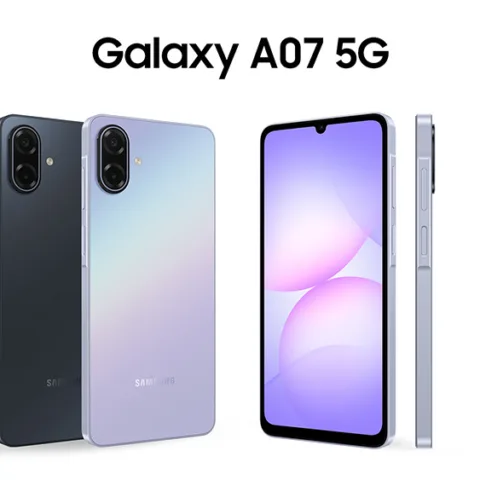When was the last time you read a book? How many times have you read a book for the past month, say compared to, the amount of articles you read on the internet, or from social media feeds? I probably read only one book a month, and usually science fiction. Everything else is gobbled up in small bites through articles on the Internet here and there. I don’t think I have enough bandwidth in my head to keep up reading more books, either by quantity or quality or genre. I still buy books and try to collect books by my favorite authors, but even my reading habit has started to move over to Kobo.
Last week, Wiku posited an interesting question on Twitter, on whether book publishers have lost their appetite in printing quality books due to the prevalence of information, quality or otherwise, on the internet. This is an interesting question, and I would say the short answer is: Yes.
Intellectual property has never been easy to deal with. Entire industries were created to ensure that the written word received monetary rewards based on sales – the world of authors, publishing agents, editors, publishing companies, book printing companies, sales agents, bookstore chains and standalone book shops, and of course, the dear readers.
This delicate chain of people drove value into the industry, as the lengthy process, in an ideal world, would populate bookstores with high-quality books catering to every interest and genre. When of course the term ‘quality’ might be subjective, the entire effort that goes behind publishing a book essentially drives the price of the book up, and the perceived value (and sometimes, quality) of the book higher in people’s eyes. Naturally, top-selling authors or publishing houses for essential non-fiction books for, say, education, can demand higher fees to the distributors and bookstores. Of course it’s not as simple as I explained, but that’s essentially what happens.
So imagine if you’re McGraw Hill, and all the money you spent researching and editing a concise education book seems to be worthless when all the college kids seem to look everything up on Wikipedia (and even use Wikipedia more often as official bibliography references as compared to “real” books). Obscure subjects might even have more information on an enthusiast website or online forum than a book a publishing company took a chance at printing years ago, and the website would certainly have a higher chance of frequently updated information. Encyclopedia Brittanica, which could essentially sell the same thing with some updates, time after time to schools and universities, probably lost a large number of private users who formerly took pride in having the most recent set displayed on their bookshelves.
But I would say, it’s a bad excuse. Even when e-books are as prone to piracy as mp3 or mp4 files and are assumed to ruin the publishing industry, it is probably the whole industry behind the publishing of a book that needs to get smarter, by playing with different rules. The opportunities that a multi-screen strategy can bring might even bring more value – and more money into the industry than previously thought (although at the cost of learning new technologies). The book might already be a niche product these days, having moved into niche status way before recorded music and movies have , but it doesn’t mean that it’s going away any time soon. Instead of being ‘just’ book publishing companies, they need to transform themselves as production companies, or even rights-representation companies, for any body of work that they think fits in with their customers.
A transmedia approach might be fruitful – Encyclopedia Britannica has famously stopped printing their centuries-long run and focused on an online (and subscription-based) presence, but I dare say there is still a buck to be made by selling actual handmade, leather-bound volumes, preferably in a limited number. A co-production with a TV company could produce Britannica-curated science or history shows, shown on cable TV where they could receive income from subscribers. And of course, a slew of mobile apps would definitely find a market for people sick of doing research based on Wikipedia entries and random blogs. A combined digital-physical approach can even divide between what is published online and what is published in depth in a book, just like what they already do with many magazines.
So instead of ‘just’ focusing on the words on pages for printing, companies should concentrate on the intellectual property behind it and find multiple ways to deliver it, with balances between the price, and the amount of information or ease of use. The internet shouldn’t be a competitor, but it should be a tool to strengthen a business – any business. So should be the case for book publishing.
 Ario is a co-founder of Ohd.io, an Indonesian music streaming service. He worked in the digital music industry in Indonesia from 2003 to 2010, and recently worked in the movie and TV industry in Vietnam. Keep up with him on Twitter at @barijoe or his blog at http://barijoe.wordpress.com.
Ario is a co-founder of Ohd.io, an Indonesian music streaming service. He worked in the digital music industry in Indonesia from 2003 to 2010, and recently worked in the movie and TV industry in Vietnam. Keep up with him on Twitter at @barijoe or his blog at http://barijoe.wordpress.com.







![[TrendForce] Lonjakan Harga Memori akan Menekan Industri Smartphone 2026](https://hybrid.co.id/wp-content/uploads/2026/02/TrendForce-Lonjakan-Harga-Memori-akan-Menekan-Industri-Smartphone-2026-480x480.webp)

